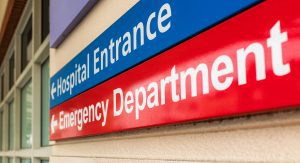 Better communication is needed across UK hospitals treating adult epilepsy patients admitted after having a seizure, a new report said.
Better communication is needed across UK hospitals treating adult epilepsy patients admitted after having a seizure, a new report said.
The National Confidential Enquiry into Patient Outcome and Death (NCEPOD) released its report ‘Disordered Activity?’ on 8 December. The report is a review of the quality of epilepsy care for adults who went to hospital with a seizure. The review spans between 1 January and 31 December 2020. This included people who already had an epilepsy diagnosis and people who were diagnosed after being admitted to hospital with a seizure.
NCEPOD used data from 610 clinical questionnaires, 264 sets of case notes and 158 questionnaires for its review.
The report concluded that there are areas throughout a patient’s journey where improvements could be made.
Main theme of improved communication
The review found that for around two in five people (42.2%) the hospital did not let their usual epilepsy care team know that they had been admitted. Around a quarter of people (26.1%) did not have their epilepsy medicines written in their notes.
 Over two in five people (43.5%) left the hospital without input from the neurology team. In around two in five hospitals (38.5%), specific epilepsy information was not routinely provided until their first clinic appointment, which could be weeks later. Only around one in 10 people (12.6%) had any information in their notes that the risk of sudden unexpected death in epilepsy had been considered and discussed with them.
Over two in five people (43.5%) left the hospital without input from the neurology team. In around two in five hospitals (38.5%), specific epilepsy information was not routinely provided until their first clinic appointment, which could be weeks later. Only around one in 10 people (12.6%) had any information in their notes that the risk of sudden unexpected death in epilepsy had been considered and discussed with them.
NCEPOD said that improved communication is the main theme of the report. It recommended improvements to alerting patients’ usual epilepsy teams when they have come to hospital as a result of a seizure. The enquiry also added that hospitals need to document epilepsy medicines and action clear plans for investigations needed.
The enquiry also recommended better communication regarding neurology advice and explaining the risks of seizures to patients and their families and carers. Hospitals are also urged to communicate the discharge and follow-up plans with the patient, their family, carers and healthcare teams.
Epilepsy Action said it fully endorses the findings and that the organisation is eager to see future improvements to patient safety and quality of care.
The full report is available on the NCEPOD website.



